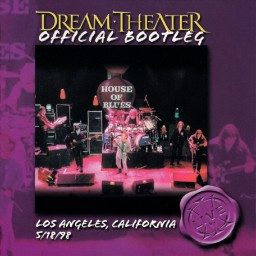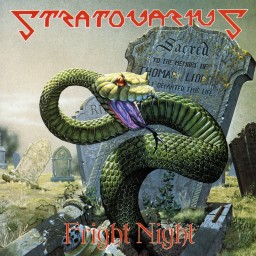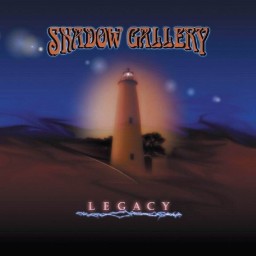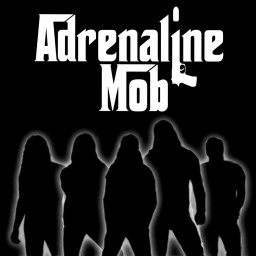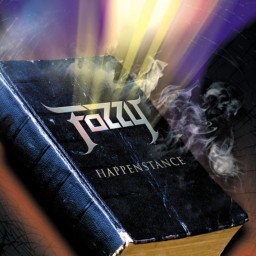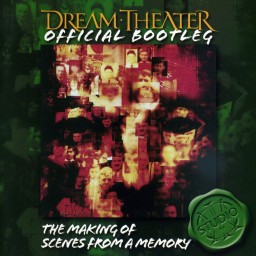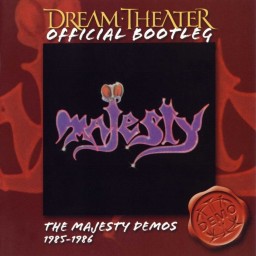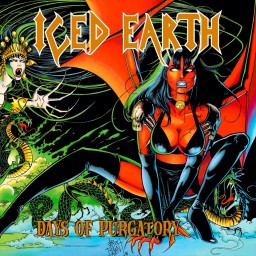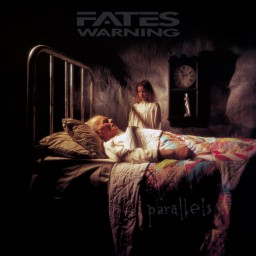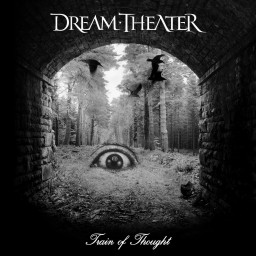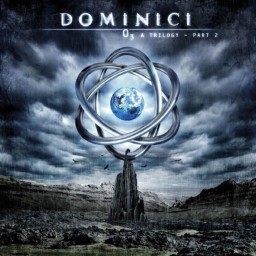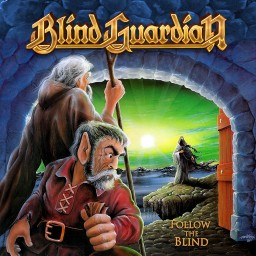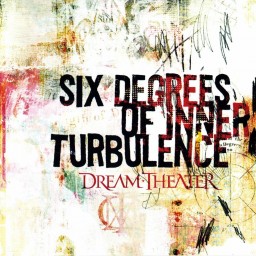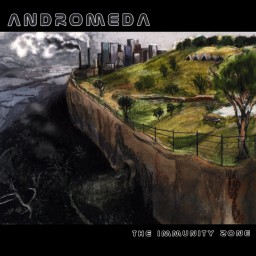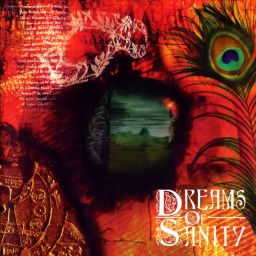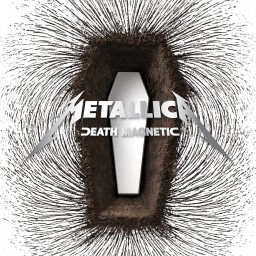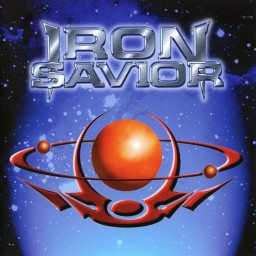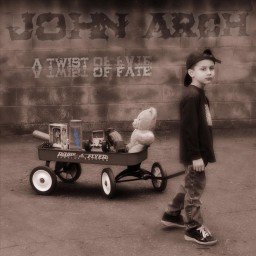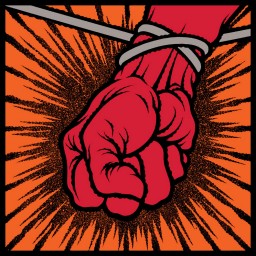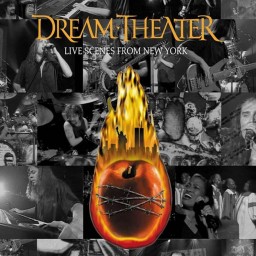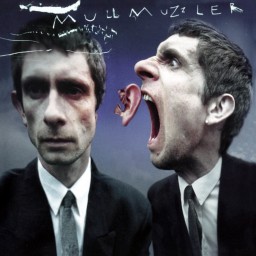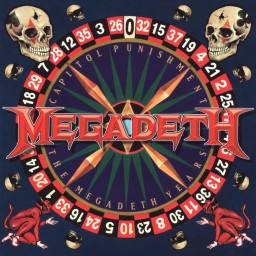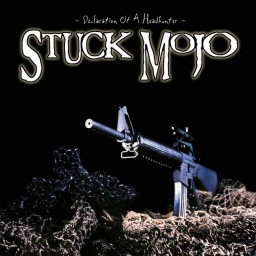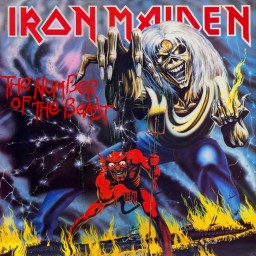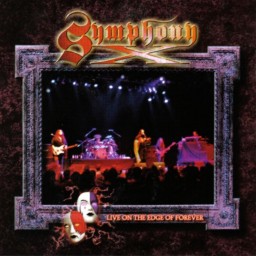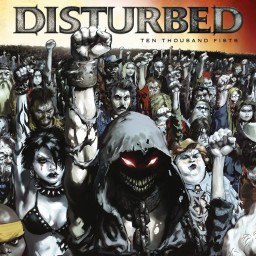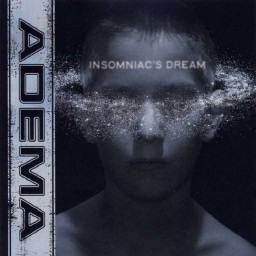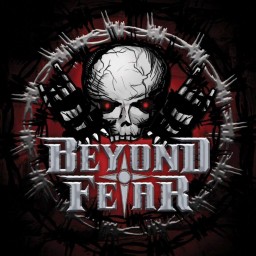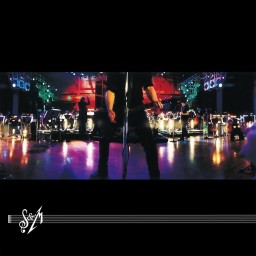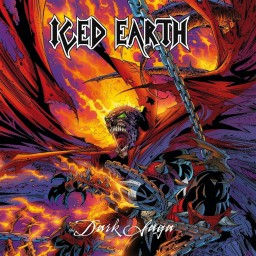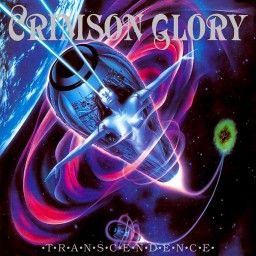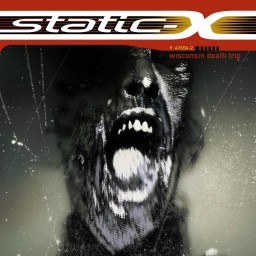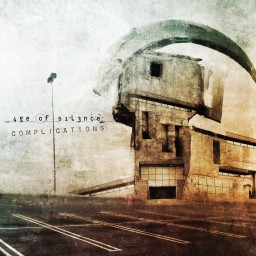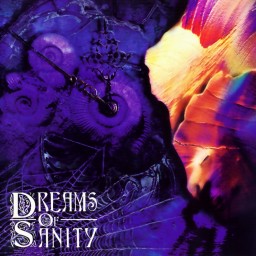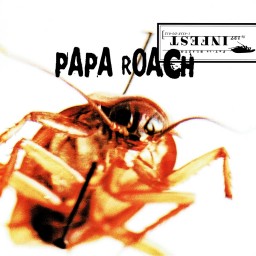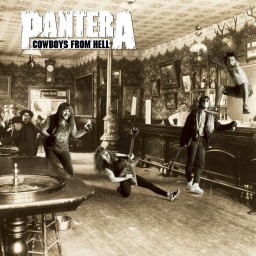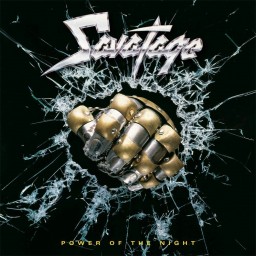MartinDavey87's Reviews
Aw man... poor James LaBrie. I can’t help but feel that this release is some kind of dig at the fella. Perhaps he’d upset Mike Portnoy or maybe he lost a bet or something? The fact is, this official bootleg by Dream Theater is a pretty substandard album thanks in part to LaBrie’s absolutely horrendous vocals which falter and diminish more and more as the set drags on.
It’s been well documented the issues LaBrie had after rupturing his vocal chords whilst touring in the mid-90’s, but damn, the number of times his voice cracks or wobbles or he just flat out can’t sing like he use to, is painful to hear. But props to the guy for never giving up, since stuff like this must have been a HUGE knock to his confidence.
Besides that, while the musicianship is fantastic as you’d always expect from this band, the only other notable reason that this recording was put out there was because it features the legendary Bruce Dickinson from Iron Maiden on vocals for a number of songs, (and Ray Alder of Fates Warning too! But that pales in comparison), and to be fair if I was joined on stage by Bruce Dickinson I’d probably want everyone to hear it too.
But even that is mildly entertaining, as it’s literally just a fun jam, and nothing overly memorable. But for what it’s worth, that’s probably the only major selling point of this release. Hell, even the front cover is a shot of Dickinson jamming with the band, leaving poor James LaBrie standing in the background with whatever shred of dignity and self-respect he had left slowly fading away.
Poor LaBrie.
Genres: Progressive Metal
Format: Live
Year: 2003
Like so many other early power metal bands from the 80's, it took Stratovarius a few attempts to truly find their sound, leaving this, their debut, as nothing more than a by-the-numbers speed metal album.
Credit where credit's due, band leader Timo Tolkki shows some incredible skill on the guitar with his fast-paced neoclassical runs and galloping riffs, and to handle the lead vocals on top of that is quite impressive. Sadly, the song-writing itself isn't really anything inspiring and the vocals certainly aren't kind to the ears either. A+ for effort though! I can barely play and sing 'Wonderwall' without messing up!
Lacking the keyboard-driven compositions of later releases, 'Fright Night' is really "just there". It's nothing to shout home about, and really doesn't feel like the same Stratovarius that would one day go on to conquer the genre. Still, it's a good effort that shows a band in their early stages who have yet to fully develop their own style.
Highlights include 'Future Shock', 'Witch Hunt' and 'False Messiah', although I wouldn't be upset if these were excluded from future compilations, all are about as memorable as the album itself.
Genres: Power Metal
Format: Album
Year: 1989
Having really hit their stride with the 'Tyranny' album, Shadow Gallery are back with 'Legacy', an album that is similar stylistically, though does away with the concept album format and features only six songs, and some rather ambitious ones at that.
Shadow Gallery's brand of progressive metal has always taken a more melodic approach than other bands of the genre, and while their guitar riffs can elicit plenty of headbanging, it's in the vocals and melodies that the groups strengths lie, with 'Legacy' being chock-full of catchy chorus's and interesting harmonies. Expertly produced to give the music the punch it needs, yet straying away from being too heavy or brutal. The Pennsylvania-based band has the right blend to appeal to fans of metal and softer rock alike.
The true centerpiece of the album is 'First Light', a 34-minute epic that serves as a smorgasbord of every possible element that gives Shadow Gallery their defining sound. The track can lull from time to time, but the highlights more than compensate for that. The middle section of the song features some of the bands finest musical virtuosity and vocal harmonies, making it a challenging yet rewarding listen.
Songs like 'Colors', 'Society of the Mind' and the title track 'Legacy' are all shorter songs that can be considered some of the bands best work. As per usual, the musicianship is incredible, finding a perfect balance between heavy and melodic, and Mike Baker's beautiful vocals are an absolute joy to listen to.
The duration of the songs can make for some demanding listens, which will ensure that while 'Legacy' contains some of Shadow Gallery's best compositions, it's probably not their best album overall. But hey, it's still a damn good one, and that's what matters!
Genres: Progressive Metal
Format: Album
Year: 2001
Adema’s 2001 self-titled debut was released at a time when nu metal was one of the biggest musical genres in the world. However, it was also short-lived, and with only minor mainstream success, the band was unable to make a big enough splash to help carry them through the subgenres demise. And so by 2003, musical trends have already shifted, and the Californian five-piece would get one final chance to either release an album that’ll see them transcend the dying fad, or forever remain one of “those bands” that were good “back in the day”.
And sadly, despite a marked improvement in writing and more confident performances, ‘Unstable’ just wasn’t good enough.
Displaying a nice mixture of heavy, groove-laden and energetic tracks, with some melodic, sentimental and emotional songs, ‘Unstable’ shows a band that has really improved and matured since their last outing. Vocalist Mark Chavez (who was originally only noteworthy for being half-brother of Korn main man Jonathan Davis) has proven himself a competent frontman, and while the instrumentation is fairly straightforward, the band have become adept at using multiple layers of simple melodies to accentuate a warmth in their sound.
But with that said, there’s still only a handful of notable tracks here. ‘Unstable’, ‘So Fortunate’, ‘Co-Dependent’ and ‘Promises’ are all pretty amazing to be honest, and definitely shows a band who certainly had the potential, but sadly never lived up to it. ‘Stand Up’, ‘Blame Me’ and ‘Let Go’ are also fairly decent, but nothing worth getting overly excited about.
Much like its predecessor, ‘Unstable’ does have some moments of absolute genius, but sadly most of it gets lost amongst an abundance of fairly average songs. It’s a good album, but in 2003, with nu metal on its last legs, “good” isn’t good enough, and while it’s certainly worth a listen or two, it’d ensure that Adema will forever be nothing more than another nu metal nostalgia band.
Genres: Alternative Metal
Format: Album
Year: 2003
I was ecstatic when this band announced their formation to the world. Mike Portnoy of Dream Theater fame, Russell Allen from Symphony X, and 'The Duke' Rich Ward from Fozzy and Stuck Mojo. Three of my musical heroes in one group. As a long-time fan of all of these guys' respective bands, this line-up seemed incredible!
So what is the music like? It's hard and heavy, and as the name of the band suggests, they're all high-octane, energetic metal tracks, but with five songs, at around 25 minutes (one of them a Black Sabbath cover), there's just nothing here to really reach out and grab me by the throat. Most of the music was written by guitarist Mike Orlando (who I'd never heard of before this band), and whilst he is an absolutely insane shredder, this EP is still pretty bland all-round.
Since this was A-Mob's first official release, we just need to see it for what it is; nothing more than a sample of what this band are doing. And in that regard, not only is it more than passable, but there's certainly potential here for some great things, if they could just polish up their sound a bit.
All musical criticisms aside though, my biggest gripe with this release is simply that Rich Ward didn't actually write or record on it. It took me four years to find a copy of this CD, and it cost me £22 to have it sent from Florida to the UK, and after all the excitement of owning a physical copy of the EP (which was only released through the band prior to the release of their first album), I was gutted when I found out that The Duke's only involvement was posing for the promotional photos.
Still, despite the musical content being pretty generic, the collector in me is still glad to finally own the CD. But that's all this is, something for collectors.
Genres: Groove Metal Heavy Metal
Format: EP
Year: 2011
With their debut album, Fozzy may have reclaimed their throne as the true pioneers of heavy metal, but sadly there are still many songs out in the open being used by other bands, and so Fozzy return once more to take back what was stolen from them by the likes of Judas Priest, Scorpions and Twisted Sister.
But seriously…
Fozzy are back with their second album, once again a combination of covers and originals, all under the fictional backstory that these are Fozzy compositions stolen from them whilst they were trapped in Japan due to contractual obligations. But while the first album may have been treading the waters to see if the group can get away with such a gimmick, with ‘Happenstance’ the band dive right in at the deep end.
Everything about this album is a step up from ‘Fozzy’. The band sound amazingly tight, and Chris Jericho really comes into his own as a vocalist, and will surely impress anyone who doubted a pro wrestler would be able to sing. However, the true highlights of this album are the four Fozzy originals. I’m not exaggerating here, but…
THESE ARE FOUR OF THE GREATEST METAL SONGS EVER!!!
Nobody would expect it from a band called ‘Fozzy’, but the four originals ‘To Kill a Stranger’, ‘Happenstance’, ‘Crucify Yourself’ and ‘With the Fire’ are all beyond words. Seriously awesome metal tunes, and this isn’t a case of "awesome because it’s so cheesy" or anything like that. This is straight up, ass-kickin’ metal. Rich Ward’s riffs blow away anything he ever did in Stuck Mojo (and I love Stuck Mojo), and Chris Jericho takes his place alongside the likes of Bruce Dickinson, Rob Halford and Ozzy Osbourne. These songs should be heard by everyone.
The covers, as before on their previous album, may not have been my ideal choice of songs to do, but the band step up none-the-less and make such awesome renditions that it’s easy to forget these songs are covers to begin with. I know fans of W.A.S.P and Iron Maiden etc, will find this blasphemous, but yes, I think all these covers improve upon the original versions. But sadly, it's the covers that knock this album down from five stars to four (and that's only because I don't do 'half ratings').
Overall, I cannot stress enough how amazing the originals are. If you’re put off by this bands comedy antics, the fact their name is ‘Fozzy’ or their singer is the first ever WWE Undisputed Champion, don’t be. Get this album, and spread the Fozzpel.
Genres: Heavy Metal
Format: Album
Year: 2002
1999’s ‘Scenes From a Memory’ is not only one of Dream Theater’s most beloved and pivotal albums, but also prog’s in general. A monumental success for the band and often cited as one of the best concept albums of all time... that doesn’t change the fact that you’d have to be the most nerdy virgin possible to actually “like” this album.
I mean, it’s mostly snippets of the album is production. Sound interesting? It’s really not. Even for die-hard fans, this is the kind of thing you’d listen to once just for the sake of hearing a documented “making of” release, only to keep it in your collection for collector’s sake.
The second disc features an alternate mix of the entire album, which is mostly why this release gets two-stars. The music is fantastic, but why wouldn’t you just listen to the actual, final studio product instead of remixes and snippets and demos.
The only real notable thing here is John Petrucci’s vocal demo for ‘The Spirit Carries On’, which is hilariously entertaining.
Genres: Progressive Metal
Format: Compilation
Year: 2003
Definitely one for the collectors and die-hard fans, Dream Theater's official bootleg release of 'The Majesty Demos 1985-1986' is split into three sections;
The first part of the album consists of instrumental demos and covers. It's Dream Theater, so the playing is amazing, even at a young age. There's no keyboards or vocals, and as this was recorded by the band themselves on an 8-track tape recorder while at college, the quality is, quite understandably, naff.
The second section contains a number of brief, 20-second "songs", which are pretty much parodies of the band 'Stormtroopers of Death'. Mike Portnoy will shout a brief sentence, John Petrucci will shred out a quick guitar lick. Done. It's not cool, it's not funny, and it's not clever. A bit pointless having this on the disc, but whatever...
Then there's the section that really counts; The 'Majesty Demos' themselves. The sound quality is alright, considering the band recorded this themselves in the 80's, it's not terrible. The vocals are pretty cheesy though. Songs like 'Another Won', 'Your Majesty' and 'Two Far' are fairly decent, and it's a shame they were never officially recorded on a future studio release (although a few live appearances have popped up over the years), but the demo quality will deter me from ever coming back to them.
The musicianship and the tightness of the band is no doubt incredibly impressive, and perfectly reflects all the countless hours these guys spent jamming together while at college. Overall however, the bulk of this disc is just the core members, Mike Portnoy, John Petrucci and John Myung, jamming. And if it isn't all that interesting to me, a die-hard Dream Theater fan, then it definitely won't appeal to the more casual listener.
Genres: Non-Metal
Format: Compilation
Year: 2003
'Days of Purgatory' is a two-disc compilation of Iced Earth songs remixed and rerecorded with then current vocalist Matt Barlow. At the time, it was intended as somewhat of a greatest hits album, with the goal being to give new fans a taste of the bands older material, while giving older fans "improved" versions of classic songs.
As a whole however, I find this album pretty pointless, and continues a downhill trend the band had been on over the last couple of years. While their first two albums, 'Iced Earth' and 'Night of the Stormrider' are absolute classics of the power metal genre, I find the two albums prior to this compilation, 'Burnt Offerings' and 'The Dark Saga' to be hugely disappointing.
The honest truth is that I just prefer the original recordings. Gene Adam and John Greely's voices suited their material better, especially with the overall sound and production of their respective albums. I find all the new arrangements uninspiring, and more often than not, where Matt Barlow has recorded new vocal lines, I find his ones don't really suit the music as well as his predecessors.
It's not all bad though, I mean, Iced Earth still release some outstanding music, and even though they're not as good as the originals, the songs here are still decent efforts. 'Iced Earth', 'When the Night Falls', 'Angels Holocaust', 'Burnt Offerings' and 'Colors' are among some of the bands best works, as well as a reworked version of 'Written on the Walls' titled 'Cast in Stone' (though I'd stick to the original, myself).
Ultimately, 'Days of Purgatory' is a mostly irrelevant release. Personally I'd recommend the original versions of all these songs. And thankfully, judging by later compilations, these recordings are somewhat "non-canon", so they've not really replaced the originals, but merely become novelty re-recordings for fans and collectors.
Genres: Heavy Metal Power Metal Thrash Metal
Format: Compilation
Year: 1997
1991's 'Parallels', which was my introduction to Fates Warning, is a continuation of where the band had been going with previous album 'Perfect Symmetry'. The power metal influences of their early days were long gone, replaced by a more technical and methodical approach, and with more emphasis on melody than speed.
I was fairly new to progressive metal when I came across Fates Warning, a band who were influential in the genres early days. Being a fan of bands like Dream Theater and Symphony X, I assumed the key element was technical virtuosity (and a keyboard player!). So it was a change of pace when I first stumbled across this album.
While the musical acrobatics won't impress as much as the aforementioned groups, it's the bands commitment to strong songwriting that carries them. In particular, Jim Matheos and Frank Aresti's guitar playing is impressive, especially when using distorted and clean sounds simultaneously. 'Eye to Eye'. 'Point of View', 'Life in Still Water' and 'The Eleventh Hour' are all examples of this bands solid chemistry, with plenty of tasty guitar riffs, interesting harmonies and powerful vocals all on display.
'Parallels' is a great album, and a good starting point for newcomers to the band. Heavy enough to appeal to metal fans, melodic enough to appeal to rock fans, and ambitious enough to interest prog fans, it's an easily accessible album that can be enjoyed by everyone.
Genres: Progressive Metal
Format: Album
Year: 1991
When discussing the making of this album, the members of Dream Theater have said that their goal, inspired by all the "classic" metal albums by bands such as Metallica and Iron Maiden, was to make a record full of "live songs" that will work well in a concert setting. An album full of metal classics, that'll get energy flowing, fists pumping and heads banging.
They succeeded.
As is always the case when bands stray away from their original sound, there are some who dislike this record for being more centered on metal, as opposed to the progressive elements that Dream Theater made famous in the early 90's. Being a metal fan as much as a prog fan, I love this record, and whilst anyone can see that they stepped away from a lot of their progressive roots on this one, the band more than compensate for it with these pumping metal anthems.
Of course, at the time this album came out (November 2003) I was still fairly new to Dream Theater, and definitely more of a metalhead than anything else. So why wouldn't I love tracks like 'As I Am' (that riff...), 'This Dying Soul', 'Honor Thy Father' or 'In the Name of God'? Each track perfectly demonstrates why Dream Theater can stand toe-to-toe with any of metal's elite.
As you would expect from this band, the musicianship is phenomenal. Most of the songs are definitely guitar-centered, with keyboardist Jordan Rudess taking more of a backseat in most songs. But he's there none-the-less, and when he's trading solos with guitarist John Petrucci, especially on tracks like 'Stream of Consciousness', you know that there's no one that can match these guys.
'Train of Thought' certainly has its prog moments, but ultimately, this is an all-out, straight-up, ballsy metal album. And it's a damn good one, at that!
Genres: Progressive Metal
Format: Album
Year: 2003
After performing live with Dream Theater in 2004 on the 15th anniversary of ‘When Dream and Day Unite’ (the album in which he provided vocals), Charlie Dominici, the bands original vocalist, felt inspired enough to make a return to music. Sadly for fans, his initial rebirth didn't have anything to do with the genre which he helped pioneer in the late 80's, with 'O3: A Trilogy Part 1' favoring the acoustic guitar-laden singer-songwriter style over progressive metal.
Barely anyone paid any attention to it. But that's okay, because the second part of the trilogy is here to rectify that.
'O3: A Trilogy Part 2' is all-out balls-to-the-wall progressive metal, and takes the singer right back to the genre with which he is most well known. Full of some absolutely bone-crushing riffs, intricate song structures and the over-the-top musical passages associated with this style of music, Dominici's return/debut (as in, the man himself and the band respectively), successfully manages to make up for the shaky start this trilogy got off on.
With songs like 'Greed, the Evil Seed', 'Nowhere to Hide', 'The Calling' and 'The Cop', Dominici is a band who sound like, and will appeal to fans of... you guessed it... Dream Theater! Amazing vocals and top musicianship make this an album every progressive metal fan should look out for.
Genres: Progressive Metal
Format: Album
Year: 2007
'Follow the Blind', the follow-up to 1988's debut 'Battalions of Fear', more-or-less follows in the footprints left by its predecessor in being nothing more than a generic, run-of-the-mill late 80's power/speed metal album.
While there are some very subtle orchestral elements dotted around here and there, a sign of where Blind Guardian would go with future releases, it's still a long way off from what would go on to become the bands defining sound. The songwriting never strays far from the speed metal clichés, and Hansi Kursch's vocals, normally a pleasure to listen to, have yet to reach their full maturity here.
The true gem of this record is no doubt 'Banished from Sanctuary', a song which remains a staple of any live set to this day. Otherwise, most of the songs sound pretty similar and it's hard to really pick out any specific highlights. The production sounds exactly how you would expect it to, giving the music a raw, harshness that it needs, and a guest appearance from Kai Hansen (of Helloween/Gamma Ray fame), is a welcome addition, though only further distinguishes this album as nothing more than a standard power metal affair.
Overall, it's not a terrible record, and I love Blind Guardian, it's just that this is a band still trying to find themselves. They'd certainly develop a sound to call their own over the next few albums, but otherwise, 'Follow the Blind' is one I'd recommend solely to the collectors.
Genres: Power Metal Speed Metal
Format: Album
Year: 1989
Dio, Scorpions, Iron Maiden, Twisted Sister. All these bands have one thing in common: They’re thieves!
After twenty years stranded in Japan, the true pioneers of heavy metal have returned, Fozzy!
It was a careless contract-signing that left Moongoose McQueen and the rest of Fozzy stuck in Japan, and with demo tapes finding their way all over the world, bands like Iron Maiden and Motley Crue were more than happy to steal Fozzy’s songs and claim them as their own, thus, stealing the very genre Fozzy created from under their noses.
Okay, comedy aside, Fozzy is a fantastic band, and for those who aren’t familiar with the group, they are really a metal band formed by wrestling superstar Chris Jericho and Stuck Mojo mastermind Rich Ward, mostly playing covers but using their humorous back story as a way of separating themselves from other cover bands.
As a huge fan of both Chris Jericho and heavy metal, it was only natural that when this album was released I had to snap it up, and what an impressive debut album. Jericho has a great voice, though at times it does feel a bit weak, but he definitely shows a lot of confidence on the two Fozzy originals, where he obviously gets to sing his own style with a voice he is comfortable with.
Unfortunately, I personally find the choice of cover songs a bit hit-or-miss. Songs like ‘Blackout’, ‘The Prisoner’ and ‘Riding on the Wind’ are all great songs that in my opinion far surpass the originals, and whilst all the other covers completely dominate the originals material, the choices are quite lackluster. I have to be honest, but songs like ‘Stay Hungry’, ‘Eat the Rich’ and ‘Live Wire’ are not the first songs I’d choose to cover.
The two Fozzy originals are great as well. ‘End of Days’ and ‘Feel the Burn’ are amazing samples of what this band are capable of, and a sure sign of the greatness to come.
Genres: Heavy Metal
Format: Album
Year: 2000
And so after the success of Dream Theater's magnum opus concept album 'Metropolis Pt. 2: Scenes from a Memory' comes the dreaded follow-up album, in which endless possibilities usually lead to outcomes that divide fans. In this case, whilst the band had always tread a thin line that equally balanced both the metal and the progressive elements of their music, from this album onwards they would begin to shift more towards the heavier side of things, with harsher vocals and heavier guitar riffs.
Consisting of just six songs which are spread out over two discs (the title track taking up the entire second disc, at 42 minutes), 'Six Degrees of Inner Turbulence' sees the band tackling some serious issues, ranging from alcoholism and addiction, religion, scientific advances, moral dilemmas and mental illness. Every song full of incredible musicianship and intricate structures that flow smoothly without compromising quality.
The title track, a 42-minute piece split up into eight individual tracks, is the true centerpiece of the album. With a vast range of heavy and soft parts, huge orchestral arrangements and virtuoso musicianship, this is a true gem in the Dream Theater discography. And as evidenced in tracks like 'The Glass Prison' (one of my all-time favourites!) and 'The Great Debate', the interplay between all the members, in particular guitarist John Petrucci and keyboardist Jordan Rudess, is unmatched by any other band.
A truly polarizing album in the groups back-catalog, how much you like the metal aspects of Dream Theater's music will determine if you'll like the direction the band are going in from here, and while 'Six Degrees of Inner Turbulence' may not be as highly regarded as 'Images and Words' or 'Scenes from a Memory', it is still an essential addition to any music collection.
Genres: Progressive Metal
Format: Album
Year: 2002
'Music Man' is the second EP released to promote Chris Caffery's 2004 debut solo album, 'Faces', and contains an eclectic choice of songs.
First there's the title track itself, 'Music Man'. A soft song with plenty of cool melodies and some really nice singing by Caffery. Not sure why this track was chosen as a single however. It's a good track, but not the best choice to reflect the album it appears on. Unlike...
... Straight up, two of the best songs from the 'Faces' album, 'Pisses Me Off' and an extended version of 'Abandoned'. Brutally heavy, with some thunderous riffs and insane vocals, these two songs alone make this EP worthwhile. There's also a censored version of 'Pisses...' which is slightly humorous to begin with, but quickly wears thin and becomes pointless.
There's also three non-album tracks. None of which are all that interesting though. Two of them are Christmas-themed, with a strong Trans-Siberian Orchestra (of whom Caffery plays for) vibe going on, but they're pretty dull songs. And there's 'Forever We'll Be', which also appeared on previous EP 'The Mold'. I wasn't too keen on that song then, and I'm not keen on it now.
Overall though, this is a decent EP. Chris Caffery is an incredibly underrated guitarist and songwriter and I can't recommend his solo material enough. And while this EP is mainly for collectors (I'd definitely suggest checking out his 'Faces' album if you love your music heavy), there's a few songs here that hold up as some of Caffery's finest.
Genres: Heavy Metal Progressive Metal
Format: EP
Year: 2004
Throughout their careers, most bands go through a stage where they alter their sound. Sometimes it's something drastically huge, and sometimes it's just subtle little changes. It could be a huge improvement or a complete disaster, and it could last for only one album, maybe a couple of years, or possibly even a permanent decision in which there is no turning back.
Which brings us to 'The Immunity Zone', the fourth album by Swedish prog metal group Andromeda. The songs are a lot more stripped down than previous efforts, and there seems to be an overall darker mood throughout. So what's the deal? Are they trying to reach out to a broader audience? Are they experimenting with different ideas? Has guitarist Johan Reinholdz just decided he can't be bothered with endless noodling?
Nobody knows the answer to these questions but the band members themselves, but despite the change in direction, this is still one kickass release. It's probably their weakest effort to date, but it has some truly remarkable songs on it regardless.
‘Slaves of the Plethora Season’, possibly Andromeda's least ambitious song, is a good representation of the change in sound. It has no solos, no ridiculous time signatures, and terribly cringe-worthy lyrics (“who can get an erection?”), but none-the-less it has some very catchy, heavy riffs, that put most modern metal bands to shame. And that is one thing this album is overflowing with; riffs!!!
As expected with this band, all performances are of the highest standard, so even with the more relaxed playing and stripped down arrangements, these guys still play their hearts out, sounding tighter than ever, and Reinholdz cooling down on the guitar has really helped all the other members shine, in particular, drummer Thomas Lejon, who's an absolute beast behind his kit, truly dominates on this album.
Of course the true centerpiece, and most probably one of Andromeda's greatest compositions, is the 19-minute ‘Veil of Illumination’. There are no words that can do justice to describe how insane this song is. Featuring absolutely breath-taking playing, well thought-out lyrics and arguably the craziest instrumental passages ever recorded (check out the middle section of this song right now), this is one of the most insane pieces of music you'll ever hear.
And that's not an exaggeration.
In summary, 'The Immunity Zone' is probably Andromeda's weakest release, yet features some of their strongest songs. It's a bit of a mixed bag when compared to their previous releases, but this by no means make it a bad album. Probably worth the money just for that 19-minute epic, to be fair.
Genres: Progressive Metal
Format: Album
Year: 2008
After a fairly messy and raw debut, Dreams of Sanity are back with 'Masquerade', an album where the band really refined their sound, and while the songwriting would still be lacking in places, it certainly laid the blueprint for their next album, which would go on to be their best (and sadly, final) release.
Most noticeable with this album is the much-improved production, with a crisp and clear sound that really emphasizes every instrument. The musicianship is fantastic between the band members, with heavy and interesting guitar riffs that are perfectly complimented with some intricate keyboard melodies. The interplay between everyone involved is great, while never being overbearing or detracting from the flow of the music itself.
There are a few moments where things tend to lull, but for the most part, this is a solid effort. The songs fit together well, with lots of energetic performances that makes for a good listen. Some of the highlights involve parts one and two of the five-track piece 'Masquerade', 'Within (The Dragon)' and 'Lost Paradise '99'. Of particular note is 'Masquerade Act 2', which ends with a fantastic crescendo that builds up with more and more tension over a minute and a half, but never dips in momentum.
Overall, this is a good album by Dreams of Sanity. It's far from perfect, but it's a huge improvement upon their debut, and a precursor to what will become their finest work, with their next album.
Genres: Gothic Metal Symphonic Metal
Format: Album
Year: 1999
There was 'Load' and 'Reload' that massively divided fans, there was a covers album, and a live album that featured an orchestra. Their bassist left, and their supposed big "comeback album" ending up being a critical flop. To make matters worse, they released a DVD which did nothing but portray the world's biggest rock stars as petulant children. It'd certainly been a tough decade Metallica.
But all of that was about to change.
Deciding to finally go "back to their roots", Metallica released 'Death Magnetic' in 2008, which sees the band bringing back their thrash-inspired sound not heard in 20 years. And it kicks all the critics square in the face, firmly establishing that despite their age and everything they'd done over the last decade, Metallica were still the kings of metal (Sorry, Manowar).
While 2003's 'St. Anger' had its faults (I don't mind that album, for the record), it was definitely a step in the right direction in terms of Metallica returning to the metal sound that made them famous in the first place. But every cringe-inducing problem that record may have had has been rectified ten times over with this release. The riffs are heavier and more complex than before. The guitar solos are back. The lyrics are more inspiring, and James Hetfield's voice sounds much, much better than it has done in a long time. Even Lars Ulrich's fairly simplistic drumming is more intense than anything he'd done on the previous album.
Metallica are back, baby!
The production on this record is far from perfect, but it's certainly beefier than it was on 'St. Anger', and despite the mix levels being a bit off, at least the drums sound like drums again!
The songwriting harkens back to the days of 1988's '...And Justice For All', with a return to intricately structured ten-minute songs. And although a lot of them are full of energy and complex musicianship, this is mostly the only major detriment to this release, because towards the end the album really does feel like it's dragging a bit. As awesome as the songs are (and indeed, they are!), each one of them could have benefitted by a minute or two being cropped off. Aw well...
'That Was Just Your Life', 'Broken, Beat & Scarred', 'The Day That Never Comes', 'All Nightmare Long' and 'The Judas Kiss' all demonstrate that despite all the years and everything this band have been through, there is still plenty of gas left in the tank.
Genres: Thrash Metal
Format: Album
Year: 2008
Iron Savior are a power metal "supergroup" that consists of Gamma Ray's Kai Hansen, Blind Guardian's Thomas Stauch, and record producer Piet Sielck (who?). To sum this up in one sentence, this, their self-titled debut, is a concept album focusing on a self-aware space ship...
...
Wait...
Hold on...
...
Okay, you're still reading. It'll take more than self-aware space ships to detract you. Good job. So let's keep straight faces and focus on what matters most... the music.
Taking what sounds like a terrible idea for a rock opera and turning it into a half-decent metal record is not an achievement to be scoffed at, and what this band may lack in finesse and quality, they certainly make up for in energy and enthusiasm. If you can look past the endless Judas Priest comparisons and the stench of rotten cheese, some of the tracks on 'Iron Savior' are pretty good, of course, some of them are also pretty terrible.
'Iron Savior', 'Assailant', 'Protect the Law' and 'For the World' are all power metal classics (a paradox?), whereas some of the songs, such as 'Riding on Fire', 'Children of the Wasteland' and 'Break It Up' are absolute stinkers. And Sielck's vocals don't help much. Sometimes they fit the music perfectly, sometimes they sound a bit over-the-top and ridiculous. It's hard to decide if I like them or not.
There's some fine riffing going on, as would be expected by power metal godfather Kai Hansen, and the cohesiveness between himself and Sielck is akin to that of similar bands in the genre, such as Gamma Ray (coincidence?), Helloween or Judas Priest. It's just a shame that memorable riffs aren't too common, but hey, the good ones are fantastic, so I'll give 'em that.
With any doubts in mind, you just have to remind yourself that it's a power metal album about a self-aware space ship. A bloody self-aware space ship!!! The cheesy lyrics and repetitive guitar riffs suddenly don't seem that bad now, do they?
Genres: Power Metal
Format: Album
Year: 1997
Fates Warning are one of my all-time favourite bands, so it should come as no surprise that when their original vocalist, John Arch, returned to the music scene after a 16-year absence and released 'A Twist of Fate', that it was an EP I had to have!
I'm not going to deny, prior to hearing this disc I wasn't the biggest Arch fan. Whilst I enjoyed his early contributions to Fates Warning, I've always preferred Ray Alder's vocals. In fact, although Arch was good, there were times when I found his high-pitched vocals quite grating. However, 'Twist...' has changed that. Because the years have been kind to his voice, or perhaps modern production has been, but either way, this EP is something very special!
Despite featuring only two tracks, 'A Twist of Fate' is an absolute delight to listen to. Both songs, 'Relentless' and 'Cheyenne' are overflowing with emotional vocals and tasty guitar riffs, and are almost unique in their own special ways. Clocking in at about half an hour, this EP features some of the most beautiful musical passages I've ever heard, particularly in 'Cheyenne', which is probably one of the best progressive metal songs that you've never heard of.
Featuring a "who's who" of musicians, Arch has recruited some of the finest players in the genre. These include his former Fates Warning brethren Jim Matheos on guitar, drummer Mike Portnoy, best known for his work with Dream Theater and Transatlantic, and bassist Joey Vera of Armoured Saint and Fates Warning fame. Impressive, right?
Fantastic music, intelligent lyrics, told through one unmatched and totally unique voice. It doesn't matter if you don't like Fates Warning. It doesn't even matter if you don't like progressive metal, because this simple EP is so much more than that! Let's hope Mr. Arch plans on sticking around this time!
Genres: Progressive Metal
Format: EP
Year: 2003
I like 'St. Anger'.
There, I said it.
Metal fans the world over will probably know all about 'St. Anger' and what contributed to its critical panning. The atrocious production, the awful drums (that don't even sound like drums), the cringe-worthy lyrics, the lack of guitar solos, the strained singing... the list goes on and on. But for all its faults and wrongdoings, the music itself on this album is still fairly decent.
I was sixteen when this album was released and was, at the time, a Metallica fanatic. Trivial things such as production was the last thing on my mind when this came out. I was just happy that my favourite band had released a new record and it rocked. Of course, as I grew older I learned to appreciate music production more, but that doesn't take away from the fact that the joy I gain from the compositions themselves still remain.
Whilst we're all familiar with (and most probably dislike) 'Frantic', 'Some Kind of Monster' and 'The Unnamed Feeling', this record has some forgotten gems such as 'Sweet Amber', 'All Within My Hands' and 'Shoot Me Again', which are all pretty underappreciated.
In truth, I'd be wasting my time if I tried to sell anyone on this album, as by now I figure everyone has made up their mind about it. But I'm happy with it. Sure, it has its problems, but it's different and unique and I enjoy it all the same. And the extra DVD of the band playing the album in the studio make this a nice little package.
Genres: Alternative Metal
Format: Album
Year: 2003
With the success of 'Metropolis Part 2: Scenes from a Memory' under their belts, Dream Theater were sitting firmly on the throne of the prog world, and so what's the next step? To take the entire concept album on tour, of course!
An absolute sonic tour-de-force of Dream Theater music, the band are relentless as they bombard a New York audience with over three hours of excellence. Besides playing 'Scenes from a Memory' in its entirety, with a few added bonuses thrown in, the band play various hits from their past records, including all three parts of the 'A Mind Beside Itself' trilogy from the 'Awake' album, 'Metropolis Pt. 1' and 'Learning to Live', both clocking in at ten and twelve minutes respectively, and if that wasn't enough, they then close with the 23-minute epic, 'A Change of Seasons'.
This is not for the faint-hearted.
As you'd expect from Dream Theater, the musicianship and chemistry is unparalleled by any other band. Each instrumentalist here has truly mastered their craft, with the only real weakness coming from vocalist James LaBrie. He tries his best, bless him, but having gone through some well-documented problems at the time (food poisoning led to him rupturing his vocal chords a few years prior), his voice can be pretty grating to listen to at times. However, he does redeem himself at the end when he jokingly says "sorry about the short set". Good job, sir!
All praises aside, I'm not the biggest lover of live albums, as I usually prefer the punch and clarity of a studio recording, and at times I feel the sound isn't as perfect as it could be, at least, not when compared to the 'Scenes from a Memory' record. But that just comes down to personal preference.
With that said, 'Live Scenes from New York' is a beast of a live album. A three-disc set that perfectly sums up Dream Theater's career to that point, and an all-out assault of progressive proportions. This is an essential addition to every fans collection.
Genres: Progressive Metal
Format: Live
Year: 2001
It's 1999 and James LaBrie has released his first "solo album", a term used lightly as this is still a group collaboration, despite being mostly considered a James LaBrie "project". It sounds similar to Dream Theater (no way?!?!), but that's not a criticism. In fact, something interesting to note about this album is that it was supposedly written and recorded by all the musicians separately, exchanging ideas through post and emails. That's a common thing these days, but back in 1999 it was still quite an ambitious undertaking.
Still, I'm not going to use that as an excuse for the relatively average quality of the songs. They're not terrible, but they all sound pretty disjointed, lacking the soul of a song that was created through spontaneous jam sessions of people sat in the same room together.
Besides LaBrie on vocals, you have some heavy hitters like Mike Mangini on drums, Matt Guillory on keyboards and Mike Keneally on guitars. It's a shame there just doesn't seem to be any chemistry going on between them all. But hey, criticisms aside, some of the songs are pretty good. 'His Voice', 'Guardian Angel' and 'Shores of Avalon' are all redeeming qualities of 'Keep It To Yourself'. Sadly, then there's also songs like 'Beelzebubba'. It has an almost Faith No More vibe to it. It sounds experimental and I appreciate what the group were attempting here. But come on... there's only so many times I can tolerate hearing James LaBrie singing "Slick Willy"...
It's certainly not going to be on anyone's "best albums of 1999" list, but it's not a bad addition to the collection if you stumble across it cheap. Ultimately, it's Jame LaBrie, so there's bound to be plenty of Dream Theater fanatics out there (like me) who need to own everything the band and its members put out, anyway.
Genres: Progressive Metal
Format: Album
Year: 1999
There's always going to be an issue for compilations that they quickly become outdated and nothing more than fodder to be snapped up by elitist fans that need to own everything (do these people still exist?). As far as such releases go, 2000's 'Capital Punishment', which was also the first "greatest hits" album Megadeth released, is a bit of a mess.
I mean, the bulk of the music is fine, and covers most of the bands major early hits, but at the time of its release, with 15 years and nine albums worth of material to choose from, it's certainly an underwhelming collection. Made even more bizarre by the backwards order of its track list. You know something's not right when you're listening to 'Use the Man' four songs into the bloody thing!
Regardless, it's probably dirt cheap these days, so could be an easy starting place for newcomers. It's got the bulk of the important songs, including 'Holy Wars... The Punishment Due', 'Hanger 18', 'A Tour Le Monde', 'Peace Sells', 'Trust' and 'Crush 'Em', but overall, it's just an outdated release that is mostly irrelevant today, except for a weird montage hidden at the end of album in which a load of tracks are all mashed together to form a brief retrospective of the bands career. It's interesting, but nothing overly memorable, or listenable.
The album is also notable for two new songs, 'Kill the King' and 'Dread and the Fugitive Mind'. The former would appear on later compilations, while the latter would appear on the bands next studio album. Again, rendering this release obsolete.
'Capital Punishment' is an album I'll probably never listen to again, and the CD will spend the rest of its days collecting dust on the shelf (I'm one of those collectors, damn it), but still, back in the year 2000, at 13 years of age, this was my third Megadeth purchase, and the fact I'm still here today shows that the album did its job well.
Genres: Heavy Metal Thrash Metal
Format: Compilation
Year: 2000
Four albums into their career, and it took a band falling apart internally to put together what I consider their best work. 'Declaration of a Headhunter' was strung together by guitarist Rich Ward and co. while the band struggled through drug problems, burnout, general bickering, and the added kick to the head that nu metal was becoming a worldwide phenomenon while Stuck Mojo (who were nu metal way before the term was even coined) were being left behind.
"Rap metal" has always been a dirty word to metal fans, and the aforementioned nu metal scene of the early 2000's (which relied heavily on rapping vocals) certainly didn't help to endear the style to more people. As it is, while this is some of Stuck Mojo's best work, it mostly always ends up being overlooked and passed off as nothing more than cheesy and tacky.
Now, I respect everyone's right to an opinion, but in this case, you're all wrong.
'Declaration...' is a fantastic release by one of the pioneers of rap metal. With some of their tightest and most polished songwriting, Rich Ward's signature guitar riffs being some of the best he's ever written, and a coherent use of rapping, singing and growling, this album has it all! There's an abundance of backing vocals and guest appearances, helping compensate for the lack of Bonz during the making of this album, but it works amazingly and fits the music.
Featuring some of their most politically-charged lyrics, their heaviest songs, and interesting spoken intervals that touch upon some thought-provoking subjects (which still hold up all these years later), this should have been the album to put Stuck Mojo in the big leagues where they belong. Tracks like 'Raise the Deadman', 'Drawing Blood', 'Give War a Chance', 'Evilution', 'Hatebreed'... the whole damn lot of 'em... are all examples of why rap metal should never be so casually disregarded.
'Declaration of a Headhunter' is without a doubt one of the most underrated albums, by one of the most underrated bands, of all time. A true masterpiece of heavy metal and hip hop.
Genres: Alternative Metal
Format: Album
Year: 2000
'The Number of the Beast' is the album that gave birth to the Iron Maiden we all know and love today. Besides a number of memorable hits that have remained a staple in live sets, it's most notable for featuring the debut of Bruce Dickinson, a man who would go on to become one of the most beloved and recognizable singers in metal.
Musically and sonically, this isn't much different than Iron Maiden's previous two albums. Rough and gritty 80's new wave of British heavy metal, the only remarkable differences, besides the addition of a superior vocalist, is the slightly stronger compositions. Most notable being two of their biggest hits (which still hold that title today), 'The Number of the Beast' and 'Run to the Hills'.
Of course, there's also other Maiden classics such as 'Hallowed Be Thy Name', 'The Prisoner' and 'Children of the Damned', which have all stood the test of time and are still as refreshing today as they were in 1982.
The playing is good for its time. Steve Harris is an absolute beast on the bass. Dave Murray and Adrian Smith are both competent guitarists, who've yet to utilize their full potential, especially when it comes to the duel harmonies they'd use on future releases, but they play more than enough to give all the songs the small embellishments required.
'The Number of the Beast' kicked off a long run of releases that would usher in the bands "golden era", and while it has its significance in Iron Maiden's history, I don't really consider it anything more than a decent album. It's good, but the best is most definitely yet to come.
Genres: Heavy Metal
Format: Album
Year: 1982
Symphony X are one of my all-time favourite bands, without a doubt. BUT... (you knew this was coming), 'Live on the Edge of Forever', their 2001 live album, doesn't really do their music justice.
Now hold your tongue before you condemn me for this blasphemy and take heed! Firstly, I'm not really big on live albums. I do like them, and if I'm a fan of a band I'll endeavour to own everything they release, but ultimately I like the slick, crisp sound of a studio recording. Everything is perfectly balanced (mostly), the sound is punchier, and it just feels more 'definitive'. Live albums can be good for jams and random nuggets of joy where the band can be entertaining through banter or crowd interaction. But otherwise... give me a studio album.
Secondly, to be brutally honest, Symphony X's music doesn't convey the same type of energy that goes down well on a live setting. Don't get me wrong, I love Symphony X, and the song choices here are fantastic! But I love live albums where there's a palpable energy flowing! Where you can really feel electricity in the air. All I imagine here is a bunch of people standing around watching a band play, and then clapping at the end.
Again though, Symphony X are one of my favourite bands, and the set list and the playing is incredible! In fact, some of the songs are played even faster than their studio counterparts, which is insane! The band are truly all masters of their craft. And with classics such as 'Smoke and Mirrors', 'Through the Looking Glass', 'Church of the Machine', 'The Eyes of Medusa' and most of the 'V: The New Mythology Suite' record being played, there's certainly no shortage of bangers.
However, there aren't really many noteworthy additions to the songs and there's no entertaining shenanigans or banter. Just track after track with crowds cheering in between. I love Symphony X, but in the end... I just prefer the studio albums.
Genres: Neoclassical Metal Progressive Metal
Format: Live
Year: 2001
Disturbed’s third studio album, 2005’s ‘Ten Thousand Fists’, sees the band finally hit their stride, adapting a more contemporary sound while somewhat maintaining their groove-based nu metal style. With that particular subgenre of music being dead and buried, this was a pivotal album for the band to show that they could hold their own outside of that scene, with an album that would appeal to fans of metal old and new alike.
Having focused on the highlights of their previous releases, catchy choruses in particular, ‘Ten Thousand Fists’ has an abundance of hooks that makes every track memorable, and with its monstrous production and simple song structures, Disturbed’s music sounds a lot more accessible and mainstream.
Guitarist Dan Donegan’s guitar playing is brilliant here. With skull-crushing precision, his riffs are heavy, yet groovy, and fit perfectly with David Draiman’s melodic vocals. In fact, Donegan lets rip in a couple of tracks with some very slick guitar solos, showing that he had the chops all along, but either left them out to further conform to nu metal trends, or simply that there was no need for them. Either way, he’s finally cutting loose, and it sounds great!
Highlights include the thunderous hit single ‘Stricken’, the huge and epic-sounding ‘Overburdened, and a cracking cover of the Genesis classic, ‘Land of Confusion’, as well as ‘Just Stop’, ‘Guarded’, ‘Sacred Lie’, and ‘Pain Redefined’. And then of course, the title track itself, which is an absolute anthem that will literally produce a sea of raised fists for a metal call-to-arms. The musicianship on these tracks is fantastic, with exceptional performances from everyone involved.
Overall, while ‘Ten Thousand Fists’ isn’t quite a masterpiece, it’s a solid album that definitely helped Disturbed shake off any nu metal remnants, and established them as a legit heavy metal act. It holds up well today, and marks the band as one of the more important acts to burst onto the scene at the turn of the century.
Genres: Alternative Metal
Format: Album
Year: 2005
Adema's 2001 self-titled debut was a good album. Nothing amazingly special, but enough to warrant their small fan base during the heyday of nu metal. While they never achieved the mainstream heights of contemporaries such as Limp Bizkit and Linkin Park, they were somewhat under the spotlight due to vocalist Mark Chavez being the half-brother of Korn frontman Jonathan Davis. But that was pretty much their biggest claim to fame.
While 'Adema' did have a couple of decent songs on it, and in fact, 'Freaking Out' is bloody brilliant, they followed it up a year later with 'Insomniac's Dream', a seven-track EP which heralded one single, and that was pretty much it.
The single in question, 'Immortal', is the only memorable track of the EP. Admittedly it's not bad, it's got some tasty riffs and Mark Chavez's vocals are certainly improving, but with that said, there's countless other things I'd rather listen to instead.
Then there's an Alice in Chains cover which is listenable but forgettable, a few remixes which do nothing for me (a remix of the aforementioned 'Freaking Out' is a huge letdown), a live song, and a radio edit of 'Giving In', probably the bands biggest hit. It's a good song... but do we really care about hearing a radio edit? No. We don't.
Overall, 'Insomniac's Dream' is an irrelevant EP. It's only strong point is 'Immortal', and even then, it's not really worth getting just for that. I would say it's only for the die-hard Adema fans, but I'm not entirely sure if any exist.
Genres: Alternative Metal
Format: EP
Year: 2002
I have to say, I've always felt sorry for Tim Owens. The poor lad just can't escape the stigma of being a Rob Halford copycat. Both his stints in Judas Priest and Iced Earth (which I really enjoyed) put him in an unfavourable position where he was replacing someone much beloved by the fans (Halford and Matthew Barlow respectively), and as a result he's always remained nothing more than a bit player. His name can add credibility to a project, but only just enough that you'll probably find yourself the only one who cares.
Well, no longer looking to be a hired hand in a group where he has no control, Owens struck out on his own with Beyond Fear, a band which would offer him the chance to get more involved with songwriting and the creative side of things.
Funnily enough, however, while 'Beyond Fear' is a pretty decent effort, it's almost laughable how instantly recognizable the Judas Priest influence is. Owens no doubt wears his influences on his sleeve, and in fairness, there's nothing wrong with that if the music is good. And yes, it's good.
More in the vein of traditional heavy metal, with power and sometimes thrash metal trimmings, 'Beyond Fear' is a balls-to-the-wall metal affair with plenty of high-pitched wailing courtesy of Owens, who, despite sounding identical to Rob Halford, "comes into his own" and sounds a lot more confident when singing over his own material.
Backed by some tight musicianship and a nice beefy sound, 'Beyond Fear' will probably never be anyone's favourite album, but there's definitely something of merit here. 'Scream Machine', 'And... You Will Die', 'Save Me', 'I Don't Need This' and 'Coming At You' are all riffs-galore that deserve a listen, and show that even if Tim Owens is a Halford clone, then he's certainly one of the better ones.
Genres: Heavy Metal
Format: Album
Year: 2006
When it was first revealed that Metallica's next endeavor would involve playing with the San Francisco Symphony Orchestra, I can only imagine the disgust and doubt that crept into the minds of fans. After the divisive 'Load' and 'Reload' albums, and the covers album 'Garage Inc.' (none of which were likely to convert anyone), most people must have thought Metallica had lost their minds to consider playing with an orchestral ensemble.
Thankfully, Metallica proved them all wrong.
This album is great! Not only does it highlight the progressive elements in Metallica's music, but also how adaptable it can be to other genres. It's really hard to visualize what Metallica's music would sound like with a symphony backing it, but the orchestra, conducted by world-renowned Michael Kamen, take the band's songs and make their own arrangements and compositions from them, blending the two with ease to create an all-out attack on the senses.
Featuring pretty much all of their big hits, the band come across as stronger than ever. The musicianship is of a high standard, and some would argue that James Hetfield's vocals are at their absolute peak. And two new songs, '-Human' and 'No Leaf Clover', show that, at a time when the band leaned more towards hard rock than metal, they could still go toe-to-toe with some of the heaviest bands the genre has to offer.
I don't really have any major complaints with 'S&M', although, if I can indulge in a bit of nitpicking (everyone's a critic at heart), there are one or two songs I'd have maybe left out in place of an alternative. For example, 'The Thing That Should Not Be' does nothing for me, and where the hell is 'Welcome Home (Sanitarium)'?! Still, all the classics are here, with songs like 'Master of Puppets', 'Battery', 'One' and 'Bleeding Me' never sounding heavier.
In all honestly however, I've never really been too big on live albums, preferring the crisp and polished production of a studio recording, so this being a studio album would have been a huge plus for me. But still, it's fantastic none-the-less, and definitely as essential to any music collection as the bands earlier output.
Genres: Heavy Metal Symphonic Metal
Format: Live
Year: 1999
Iced Earth's fourth release, 'The Dark Saga', is a concept album based upon the story of comic book character Spawn. It's a bit of an odd release in the bands discography, as they stripped down their sound quite a bit, and as a whole nothing here reaches the intensity, aggression or complexity of anything we'd heard before.
I'm probably one of the very few who didn't like previous release 'Burnt Offerings', which is held in high regard by fans, and while 'Dark Saga' is somewhat a step back in the right direction, it still fails to truly connect with me. I feel like the Spawn storyline is also a detriment to the music. As a huge fan of the character, it seems like halfway through the album the lyrics and music don't seem to relate to the source material anymore. Or perhaps I'm just struggling to pay attention.
Musically, it's standard power metal, but the band have slowed down a lot, with only a couple of songs reaching the same speed as past compositions, but there's still that unmistakeable Iced Earth sound to it. Mostly in part thanks to vocalist Matt Barlow, who, with this release, is the first singer to make it to their second album with the band. With that said, his vocals are fairly disappointing here. I'm not sure if it's the hackneyed songwriting or the uninspiring lyrics, but his delivery just doesn't seem to work.
Even the guitar solos on this album are unremarkable. Most of them just being slow, melodic lead breaks with the occasional harmony. I'm all for solos suiting the songs and not playing speed for speed's sake, but there's just nothing truly memorable happening here.
Complaints aside, there are a handful of moments that save this release from being a complete abomination. The title track, as well as 'I Died For You', 'The Hunter' and 'The Last Laugh' are all decent tracks. But none of them hold up well compared to Iced Earth's other (burnt) offerings, and while it's certainly not the worst album I own, it's probably not one I intend to go back to very often. If ever.
Genres: Heavy Metal Power Metal
Format: Album
Year: 1996
'Transcendence' is the album that many Crimson Glory fans (do these still exist???) consider their finest work. And it'd be hard to disagree. Good, quality metal riffing with some nice melodies and interesting twin-guitar harmonies is something I feel that modern metal seems to be lacking, but this album has in abundance, showing you how to get the most out of two guitars.
Everything about this album is a huge improvement upon the groups self-titled debut (which is an album I struggled to enjoy, for no reason in particular). The songwriting is a lot more mature and the guitar harmonies are more consistently interesting than before. Midnight's ungodly vocal range truly shines here with a much more precise production that perfectly suits the music and the era in which it was released.
Guitarists Ben Jackson and Jon Drenning really are two sides of the same coin, with their twin-guitar assault being highly reminiscent of metal greats such as James Hetfield and Kirk Hammett, Adrian Smith and Dave Murray, or Dave Mustaine and Marty Friedman... or pretty much any other guitarist who's been in Megadeth... the chemistry between the two really is that good, and it's a travesty that they would have such a limited output over the years.
Almost every track offered here is a hit, with only a couple towards the end feeling like they were chucked in to extend the duration of the album. 'Lady of Winter', 'Red Sharks', 'Masque of the Red Death' and 'Where Dragons Rule' are some of the finest, most energetic and enthusiastic power metal songs you can find, and of course, there's also the hit single 'Lonely', which is the song that originally led me to purchasing this record in the first place!
It's a shame that a band such as Crimson Glory never truly lived up to the potential that they had in their prime, but if 'Transcendence' is forever to be considered their finest work, then that's a pretty damn good achievement.
Genres: Heavy Metal
Format: Album
Year: 1988
Static-X's debut album came at a time when the nu metal subgenre was helping heavy metal get its foothold back in the mainstream, and whilst commonly labelled as industrial metal, Wayne Static and his lads were able to easily slip in with the rest of the "nu" crowd and stand out as one of the heavier acts the scene had to offer.
Sadly, that alone won't make them much good.
For all the hype and nostalgia around this release, it isn't really all that impressive, and certainly hasn't aged too well. It's very repetitive, and not very exciting. Almost every guitar riff sounds the same, and whilst there are some fat grooves dotted around, as a whole, it just seems like one of those albums you claim to like, but you're not really sure why.
Wayne Static's mostly incomprehensible vocals and guttural noises wear thin pretty quickly, and there's quite a few "slow" moments on the album that probably detract, more than add, to the dynamics. There are a couple of passable tracks, for example, 'Love Dump' (which to me, was the heaviest song ever when I first heard it way back in the day), 'Bled for Days' and 'Push It' aren't bad... but none of them are really all that memorable, either. Then there's complete tosh like 'December'. Who thought that "song" was a good idea?
'Wisconsin Death Trip' might be worth picking up for the sake of nostalgia, but you'll quickly remember why you forgot about it in the first place.
Genres: Alternative Metal Industrial Metal
Format: Album
Year: 1999
“Meh”.
I bought this CD in a shop in Germany for 50 cents or something equally daft. I’d never heard of Age of Silence (and apparently, neither had anyone else, since they were in the literal bargain bin), but it was a metal CD, so why not?
Labelled as avant-garde metal... whatever the hell that means... this sounds a lot like something Devin Townsend would do, complete with obscure, gloomy cover art and unusual song titles. Age of Silence have a big sound, with multiple-layered guitars overproduced to give each of the three tracks a huge feeling about them. But otherwise, these songs are fairly dull. The overbearing “big” guitar chords are heard through each track, leaving me feel like there’s been an ongoing chord played throughout the entire EP.
But it doesn’t stop there. It starts to overshadow the vocals, any lead parts, the drums... the whole lot. I don’t “get” this kind of music. I understand it’s based more on ambience and what-have-you, but for the most part this is just pretty boring and repetitive. There’s one or two moments where something might sound catchy or interesting, but as a whole, considering this is only a three-song EP, it’s not really anything I’d come back to.
The shop I’d bought it from was probably relieved to be rid of it.
Genres: Avant-Garde Metal Progressive Metal
Format: Compilation
Year: 2005
My introduction to Austrian metal band Dreams of Sanity came about with their 2000 release, 'The Game', which is an incredible album and certainly inspired to me to track down the rest of their discography. However, while seeing reviews online that seemed to praise their earlier work as superior, I found myself feeling slightly disappointed by their raw-sounding debut, 'Komödia'.
While I can understand the lyrical themes or imagery that might come with being labelled as "gothic", I've never quite considered gothic metal itself a subgenre. Perhaps I find it too pedantic or pretentious, but I just like to keep things simple. As a result, I consider Dreams of Sanity to be a progressive or symphonic metal band. Long, intricate song structures with plenty of exotic musical passages, guitar and keyboard solos, odd time signatures, higher-ranged vocals and multiple songs that follow the same theme... it's all here.
It's just not very good.
The band is tight. They're all very good musicians, and the production is alright, though very raw and harsh compared to the bands later releases. But I just don't find anything really all too exciting in the music itself. The songs all drag on, with seemingly very few moments that actually stand out. Tracks like 'The Meeting' and 'The Ending' are alright, but even they tend to lag at times.
I can't really sum it up any better than this; I like this band, but I'm not a fan of this album. Check out 'The Game' instead.
Genres: Symphonic Metal
Format: Album
Year: 1997
We all remember these days, don't we? The new millennium is kicking in, and nu metal has taken the world by storm. Limp Bizkit, Papa Roach and Linkin Park were all at the top of the charts, and heavy metal was getting a much needed rejuvenation. And one of the biggest hits of the time? The profanity-ridden anthem about depression, self-harm and suicide, 'Last Resort' by Papa Roach.
Now, of course, achieving mainstream success and having a hit single that transcends all genres and appeals to everyone is pretty much a huge metal no-no, so obviously a lot of "real metal" fans hated Papa Roach and their brand of rap rocking. But behind the chart-topping four-piece are some solid chops and a knack for catchy songwriting.
'Infest', which was the bands major label debut (they had one self-released album prior to this), was released in 2000 and was the perfect soundtrack to the youth of the day. Hard, gritty and edgy. Lyrical themes that tackled issues on a personal level helped the music reach out to a whole generation of disgruntled youths.
Besides the aforementioned megahit 'Last Resort', there's 'Between Angels & Insects' and 'Broken Home' which also charted worldwide, as well as songs like 'Blood Brothers' appearing in multi-platinum selling video games, Papa Roach were on top of the world. And there's an abundance of great songs that get lost amongst all of that, such as 'Dead Cell', 'Never Enough', 'Revenge', 'Binge' and hidden track 'Tightrope'. While the musicianship isn't flashy, what the band lack in technical prowess they more than make up for with competence and enthusiasm.
Papa Roach will always live in the shadow of 'Last Resort', and while they have changed style quite a bit over the years, shunning casual fans and not winning over any metal ones, the bottom line is that 'Infest', if you can look beyond the hit singles, is a solid album that defined a generation and further established nu metal as a worldwide phenomenon.
Genres: Alternative Metal
Format: Album
Year: 2000
Often mistaken for Pantera's debut album, 1990's 'Cowboys From Hell' saw a complete rebirth for the band, after four previous releases as an 80's glam band, they changed their sound to a heavier, more groove-based metal, did away with the spandex and hairspray, and with a big record label backing them, they really were a whole new band! And hell, you'd be forgiven for thinking so! I'd been a fan of the band for years before I ever knew they released albums before this one! Aw... the pre-internet days...
Hailed for keeping metal alive in the 90's, and highly regarded as the kings of what is known as "groove metal", as influential as this band would go on to become, I sometimes feel that a lot of the praise heaped upon 'Cowboys...' is almost hyperbolic. It's not a bad album, in fact it's very good, but I guess maybe it's become so highly revered by metal fans that when I came around to hearing it it'd been just a little bit overhyped.
Guitarist Dimebag Darrell, who would go on to become one of the most famous guitar players in metal, pumps out riff after riff, with the rhythm section of Rex Brown on bass and Vinnie Paul on drums perfectly giving the music it's famous groove. The icing on the cake is vocalist Phil Anselmo, who's brutal yet melodic singing can be enjoyed by thrash metal fans trying to cling to the 80's sound, or the more hardcore audience of the early 90's. Pantera had a versatile sound that helped them appeal to so many people.
With some groove-laden classics such as 'Cowboys From Hell', 'Domination', 'Psycho Holiday', 'Shattered' and one of the bands most famous songs, 'Cemetery Gates', it's easy to see why this record is so beloved! However, for all the good songs on offer here, there are a couple of absolute stinkers that plod along aimlessly, filling up space that would have been better left empty. And that's why, for all the love this album has received over the years, I can't see it as any more than "good".
But hey, a good album is still an album worth getting.
Genres: Groove Metal
Format: Album
Year: 1990
Savatage's second album, and third overall release, is an improvement upon its predecessors, with every aspect of 'Power of the Night' being a step up from what the band had done before. The songwriting was more confident, the musicianship was more mature, and the production was a lot more polished, giving the album that perfect 80's metal sound (and there's nothing wrong with 80's metal dammit!).
The most obvious highlight here is the title track, which not only stands on its own merits as one of the bands better songs before they went all "classical metal", but honestly, it's one of their finer songs period. And while other tracks such as 'Warriors', 'Hard for Love' and 'Unusual' may be standard 80's metal pomp and circumstance, they're still pretty kickass anthems that indicate the talent and potential within this band.
Guitarist Criss Oliva truly shines here, showing a mastery that should have put him on par with heroes such as Randy Rhoads and Eddie Van Halen, but whom sadly that legendary status had always eluded him. His flair for dramatic guitar playing is truly amazing to listen to, and fans of 80's metal (that's that term again), including subgenres such as power and thrash metal, will enjoy this shred masterclass.
If you're a Savatage fan (cheesily referred to as "Savafans", I believe), then 'Power of the Night' belongs in your collection. It's not the bands best work by far, but it's an early indication of the quality of music they were capable of writing, and would certainly establish them as a band worth keeping an eye on.
"Raise the first of the metal child".
Genres: Heavy Metal
Format: Album
Year: 1985










